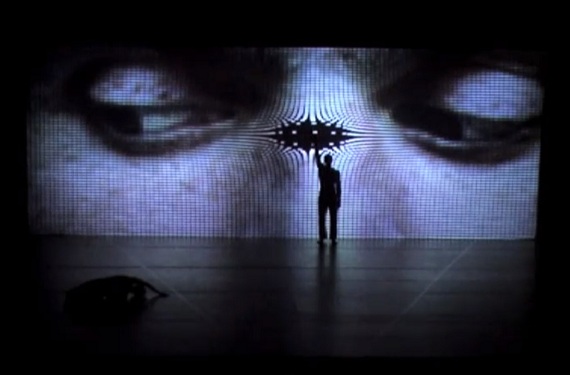The history of the
world has shown how traumatic events spurred by war, slavery, and prejudice can
impact entire countries, cultures, and generations. World War II was such an event. It devastated
a variety of groups, one of which was the Japanese living in America during the
war.
Fictive Fragments of a Father and Son demonstrates the effects of this fateful war on one Japanese father and son pair.
Fictive Fragments of a Father and Son demonstrates the effects of this fateful war on one Japanese father and son pair.
The story begins
with the author, David Mura, describing how his father masked the struggles in
his life. Mura listened to his father’s amended accounts, and believed them. He
readily accepted that internment camps were a relief from work, a chance to play basketball after school. That discrimination and prejudice was non-existent, unless you were looking for it.
Then, Mura speaks of a turning point, a year-long
trip to Hiroshima. The trip in itself implies a life lacking in strength of identity.
Mura quickly points the reader to the cause of this weakness, his father, born Katsuji
Uyemura. He assumes that Katsuji had stories, many of them, that had been
hidden from him. It was evident that Mura believed that these unsaid experiences defined his father's true nature. The author warns the reader that his father would call these
stories fiction, “completely untrue.”
As I read on, I began to understand the title
of the story. There is a section in the piece where Mura either imagines or
explains how his father learned of America's victory in the war, which came with
an understanding of Japan's loss. His
father is unsettled by the news. He was placed in a difficult predicament, forced to choose between
his ancestor’s country and the country he would likely live in for the rest of
his life. “I am American he says to himself. I am glad we won. The light
through the leaves is bright, blinding. The heat immense, oppressive. The
sounds all over town joyous. He repeats his mantra over and over. He learns to
believe it,” (p.g 352). He surrendered himself to America, just as his country had. But, unlike his country, he gave himself over completely. The pressure and his choice ultimately shattered his cultural
identity. The rest of his life becomes a struggle to build another, one that
allows him to not only survive, but thrive in his new homeland. The most powerful
expression of this reconstruction is his name, a common symbol of identity:
Katsuji Uyemura soon gave way to Tom Katsuji Uyemura, then Tom Katsuji Mura,
then Tom K. Mura (p.g 357).
Despite the considerable transformation he had undergone so early on in life, Tom Mura painted an uncomplicated version
of his life for his son. He told him that he had always lived a life equal to any white man
in America. All he had to do to succeed was, “work his ass off,” a piece of
information that he drilled into his son more than anything else. As a result,
Mura did not know much about his father's identity as a Japanese-American. He only really saw one side of him, a sturdy, over-compensating American side.
So, Mura was forced
to fill in the gaps himself. He did so in “fictive fragments” by imagined the tension his father must have felt all his life. He felt his father's (1) glorification of, and self-restriction from, white women, (2) need to prove
himself as an outsider, and (3) underlying, powerful want to belong in this country. Through all of this, he came to understand how his father's past affected their relationship. The fragments
explained the time he found a Playboy magazine
stashed away by his father; a picture of a white woman inside of the magazine
awakened Mura’s own sexuality. It illuminated his father’s fixation on success,
and why he expected nothing short of perfection from Mura. It clarified Tom
Mura’s eager acceptance of Christianity, as well as a timely renouncement when
he became successful. Lastly, it made him realize that his father’s actions
were a product of the pressure his felt growing up as an outsider in America.
Tom Mura had taken his professor’s advice to, “…try and be not one, but two
hundred percent American,” to heart. Everything that ensued was an attempt to escape his Japanese culture and embrace the American way. The journey was difficult, and that is why he had so much rage. However, in the end, he describes his father as content, with no problems with identity, past or race, and freed from history (p.g 357). It seemed as if, by succeeding in America, Tom Mura was no longer weighed down by his ties to Japan. The only thing still left unanswered is Mura's own identity/role: "What is the job of the son of K.? To forgive his crime? To try him again?"



No comments:
Post a Comment